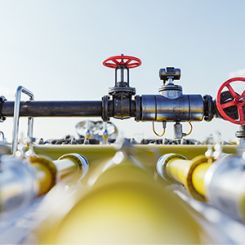Weir Oil & Gas and Expro partner to respond on the ground in EMEA region.
05/06/2019
In order to ensure less downtime, partnerships are emerging as a trend to address equipment support needed in far-off locations. Pumps & Systems recently spoke with Matteo Benincasa, Weir Oil & Gas eastern hemisphere director, sales and marketing—services, and James Jenkins, Expro senior business development manager, to discuss how companies are working more efficiently, while still addressing customer needs.


